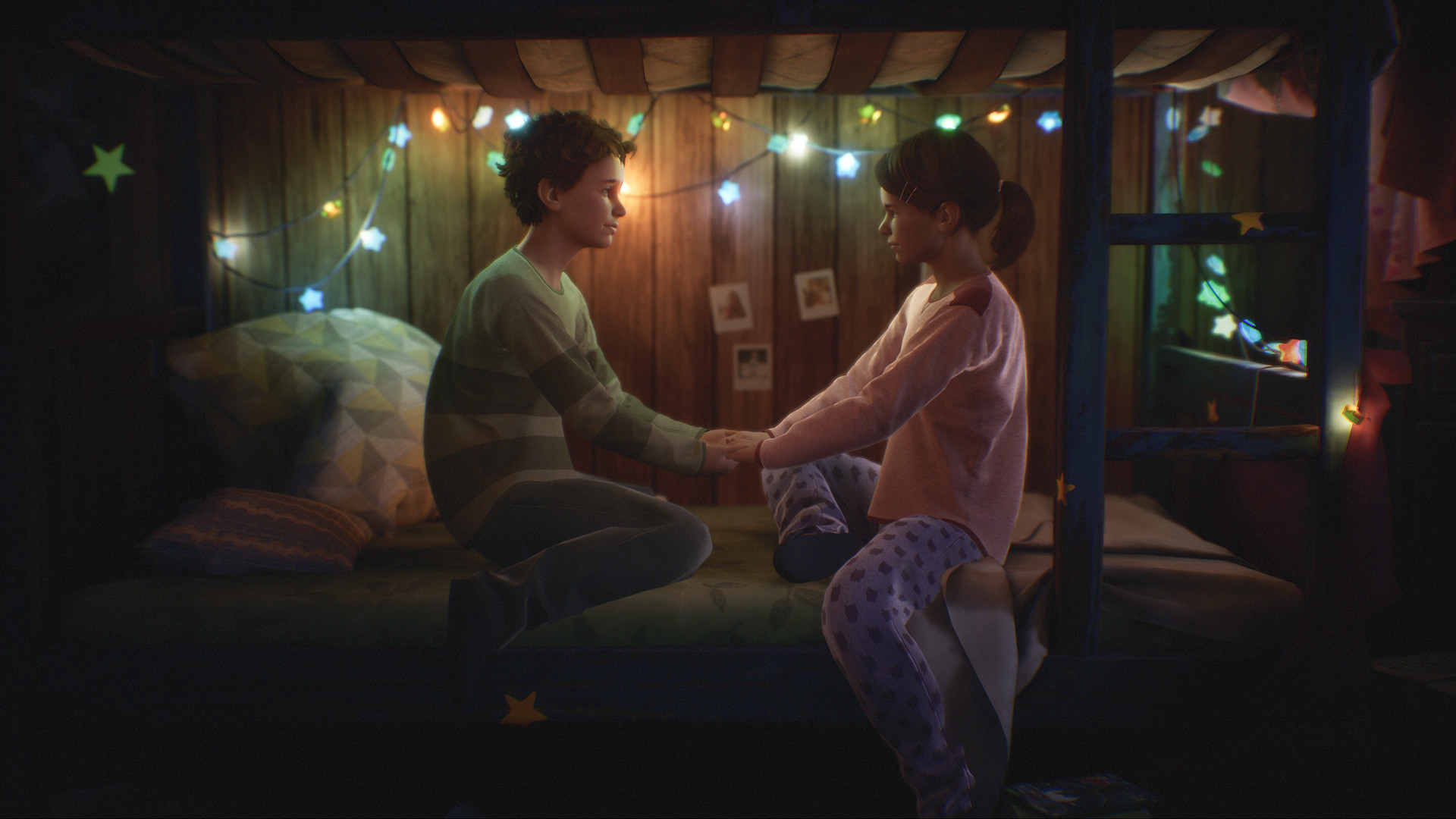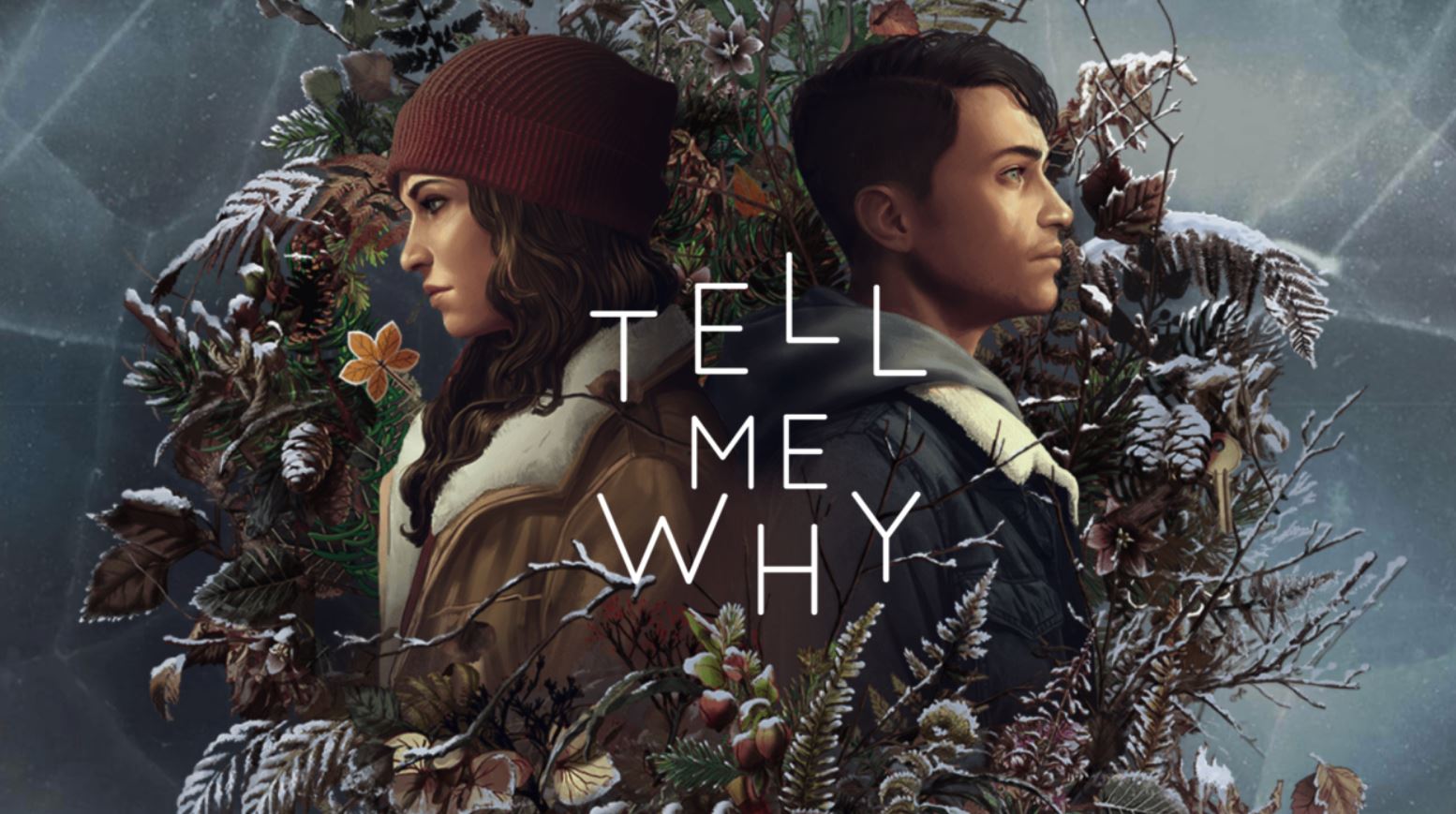Dontnod’s seminal series Life is Strange was a powerful narrative adventure focusing on two teenagers coming to terms with themselves, their lives, their town, and their superpowers.
Dontnod’s followup, Tell Me Why, takes a clear lineage from those games, with a more mature, considered take that matches the similarly more sophisticated themes.
Tell Me Why opens with Tyler Ronan finishing up a juvenile rehabilitation facility, 10 years after he kills his mother when she attacks him. Linking up with his twin Alyson, they return to their remote, abandoned childhood home in remote Alaska to sort it out before its sale, and come to terms with their shared past.

While the story is the tale of the twins, the story does focus primarily on Tyler. His experience of his childhood, his incarceration and the world he now finds himself takes a while to get going, but the twists and turns, at least in the first three chapters that I played, are interesting, if smaller scale than in previous Dontnod games.
At the Ronan’s childhood home, it is there that the twins reconnect with their “Voice”, a silent, telepathic connection that allows them to talk remotely. They also discover a new ability to see shared memories, though, interestingly, how these memories play out can differ between the two. These two abilities play a significant role not only in the story, but in the gameplay mechanics as well.

Speaking to someone? Why not discuss silently with each other about what they’re saying and if you should press them further? Or perhaps a shared, previously forgotten memory fundamentally rewrites what both twins remember happened. It’s an interesting twist on the gameplay, though, over time I don’t feel that it was used as innovatively as it could be.
As in Life is Strange, or similar games such as The Walking Dead, each choice you make affects the course of the story and the relationship between each character. But this gets to one of the areas of Tell Me Why that don’t hold up over the course of the three chapters I played.
Fundamentally, the narrative of Tell Me Why is that of personal reflection, understanding and growth, drawing on the twins’ shared past and childhood. Unlike other, similar games, there are almost no external stakes. While in Life is Strange you were fighting for the very survival of Arcadia Bay, in Tell My Why the world around you, for the most part, is largely static, reacting against you rather than being a source of conflict or interest itself.

In some ways what Dontnod have attempted in their story is more ambitious than ever before. Tyler is a trans man, and telling a story firmly centred around that, in remote Alaska, is a task more complex than that of teenage dreams or of the living dead. It is a far more mature discussion and praiseworthy that Dontnod do not shy away from some of the harder issues in this space, noting that this is a topic in which I am admittedly not an expert to speak on. There is no overabundance of “hellas” here or other cringey “fellow kids” moments.
But unfortunately what we end up with is a story that feels much more linear than before, without the sense that our decisions are having major impacts on the world, since the focus of the story is on discovering what has already happened rather than creating that history yourself. Where before your decisions might determine who lives and dies, now choosing one path or the other tends to simply hurt somebody’s feelings, which you may not even care about if you think your decision was correct regardless of its consequences.

Now that’s not necessarily a bad thing, but it is important to set your expectations if you were a fan of the Life is Strange series or Telltale adventures. It is the story of Tyler, and Alyson, told through the medium of interactive media, rather than a choose-your-own adventure game where the player instead has narrative agency. Where before you might legitimately play through the game multiple times to see what happens if you take one path over another, I couldn’t see how many decisions that I took would affect the overall story in Tell Me Why and so I felt satisfied that one time through was enough.
That said, the work on animations, environment and the game world is top notch. Playing on an Xbox One X, the frozen Alaskan town looked stunning, with richly detailed environments and some nice particle effects. The voice acting is also top-notch, and each voice actor is excellently matched with their character. I only had one technical issue in my time with the game – a hard crash to the Xbox’s dashboard, but luckily the checkpoint system meant that I didn’t lose much progress.

And thankfully each chapter is a good length. Chapters in Life is Strange 2, in particular, felt bloated and unnecessarily long. Tell Me Why has a clearer story to tell, and there’s less wandering around looking at random objects before you get to the meat of the story. I’m glad the developers have gone with shorter chapters, and fewer of them, because each progresses the story meaningfully without getting sidetracked.
Narrative adventure games like this are one of my favourite genres, and I’m always pleased when a new high-budget entry makes an appearance. It’s even better when it’s on Xbox Game Pass, all released at once, where I don’t need to wait 6 excruciating weeks in between each episode. Yet, Tell Me Why didn’t resonate with me, didn’t impact me as much as other Dontnod games (or the excellent Life is Strange: Before the Storm). I felt less in control of the characters and what they were going through, and more of a backseat drivers. And while it is fantastic all three chapters are available at launch, the ending of each felt less important, less necessary than if they were being released separately.
Don’t get me wrong, this is a fine game that I am glad is out there, a solid entry into its genre, and is a perfect weekend bite to enjoy sitting back on the lounge with your choice of beverage – I just don’t think it will change the world.

Released: August 2020
Rating: M15+
Platforms: Xbox One, PC (Windows 10)
Genre: Drama, Adventure
Developer: Don'tNod
Publisher: Microsoft






